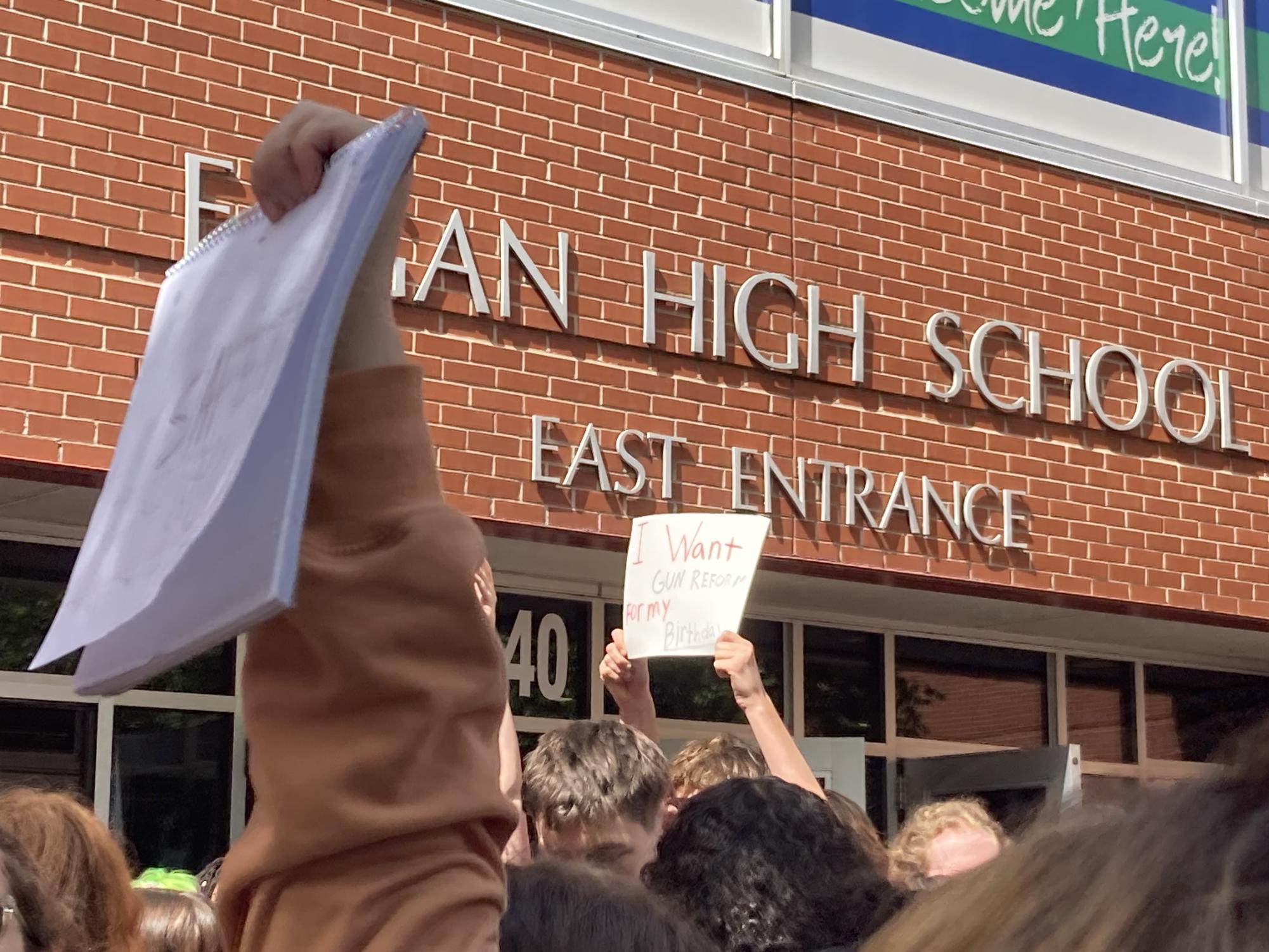Cheating and Plagiarism- A Q&A With Dr. Reikowski
March 31, 2016
Cheating and plagiarism have become much more relevant issues in the last few months. With the subject getting more attention than ever, I sat down with Dr. Reikowski to get her viewpoints on cheating and plagiarism at EHS.
What is the school’s policy in cheating/plagiarism situations?
The district has decided that it should be up to the teacher [to decide on an appropriate punishment], and they’ve also decided that students should not be suspended; it should be an academic consequence. However, if they lie to us during the investigation, they can be suspended. Teachers can give the student a zero on the assignment or test, and can even decide that [the student] is going to get an F in the course.
How can cheating follow a student through their high school career?
The teacher can write a referral into their behavior file, that they were caught cheating. So when a name is looked up, it’s going to be there. It only stays a year, but it is there, and counselors, teachers and administrators can go back through previous years. It can also follow you through word of mouth, from teachers and other students. And inside yourself, do you want to have to describe yourself, to yourself, as a cheater? What will other students’ opinions of you be after that?
What defines cheating? When does asking for help become cheating?
My line is when it’s not “Can you help me understand this” and it’s “Can I just copy your paper or homework”. That’s cheating. “Can you talk to me about #26 on the homework, how did you solve #26?” A teacher would help you that much, so that’s not cheating. If the help you receive ends up being just the answer, hopefully that’s not what you were asking for, but it happens. But if you’re just going to copy homework, both the lender and the borrower are cheating. Because you’re not turning in your work, you’re turning in mine, and I helped you do it. If I look across at your paper during a test, that’s cheating, clearly, but if I place my test answers where you can see it, I’m also cheating.
In your opinion, does the pressure that falls on students to preserve a high GPA and class rank encourage them to cheat more?
I think it depends on how much you care. Pressure is going to be related to how much you care. If you don’t care and your parents care, there’s some pressure. But if you care, which is most of the kids here, you’re building your own pressure. But how isn’t there going to be pressure at college? If you go to St. Olaf and you cheat, they tell you to go away and not come back. Yes, you’re kids under pressure, going to a high performing school, but you can’t lie to yourself and say it’s okay, because it’s not okay.
What ways can be used to deter cheating in the future?
We’ve started using TurnItIn, which checks your writing and tells you if your words are not your own, and makes you quote sources. The class of 2020 will be the first class that won’t have a class rank, and I think it’ll help take away some [pressure to cheat]. There’s also going to be a much bigger discussion in our faculty about what to do with phones, and, next year, iPads. During testing situations, where are they, and how do you make sure they’re not being used?
Have you seen a trend with cheating?
I don’t know if there’s a trend. The majority of things I deal with are plagiarism, because I work with the English department, and yes, there’s more of that. Partly, I think, because it’s so easy to find something, copy it, and paste it into your paper, and forget to quote. I really think that a lot of it is quite innocent, that they don’t realize how many words copied from a source need to be quoted.
How does having constant access to electronics affect cheating?
Absolutely, people can cheat more easily. If you really want to do it, it’s easier than ever. When I was a kid, the only way you could have done this was to steal the test, which is still a way you could do it, but the teachers keep track of the tests and make sure they get all of them back. But now, you could take a photograph of anything, and can share them with the world. It’s far easier than it was.
Has the increased selectivity from colleges influenced pressures to cheat?
I think that’s a huge part of it, yes. Kids are competing for college, and that’s pretty new, in the last ten years, that it’s escalated like that. Kids are applying to seven, eight, nine schools, and competing to get in. Winona, Mankato, St. Cloud, they all have a sense of ‘we won’t take everyone who applies’. So, the GPA makes a difference, and puts more pressure on students, but if you look at the top ten list of things colleges look for, GPA is number seven or eight on the list. They don’t want all 4.0s. They want kids with different interests and passions, people who took hard courses and didn’t get A’s. So, the GPA, while important, is not the only thing that’ll get you into college.
Is there anything else you would like to tell students in regards to cheating?
What I’d like to leave students with is [this]: If you know that something’s happening that isn’t right, tell somebody. Tell your PAWS teacher, counselor, go on Reportit.com on our website, let us know before a whole bunch of kids get in trouble, and teachers get offended and upset. Part of having integrity is making sure you tell us. I don’t care who you tell or how you tell, but make sure you say ‘this isn’t right’.






Matt Curtius • Apr 1, 2016 at 8:13 am
The reasons of plagiarism seem to be obvious. To begin with, a great amount of students want to finish the work in the least possible amount of time. Also, it is not a secret that some students have no confidence in their ability to express thoughts in writing. And we shouldn’t forget about the existence of unintentional plagiarism. My attitude to plagiarism is absolutely scornful. To my mind, teachers should find the ways on how to minimize plagiarizing. When our college faced with this problem, our administration with teachers decided to embrace a plagiarism detector Unplag https://unplag.com/ as they believed that such kind of tool is directed at qualitative improvement of academic standards.